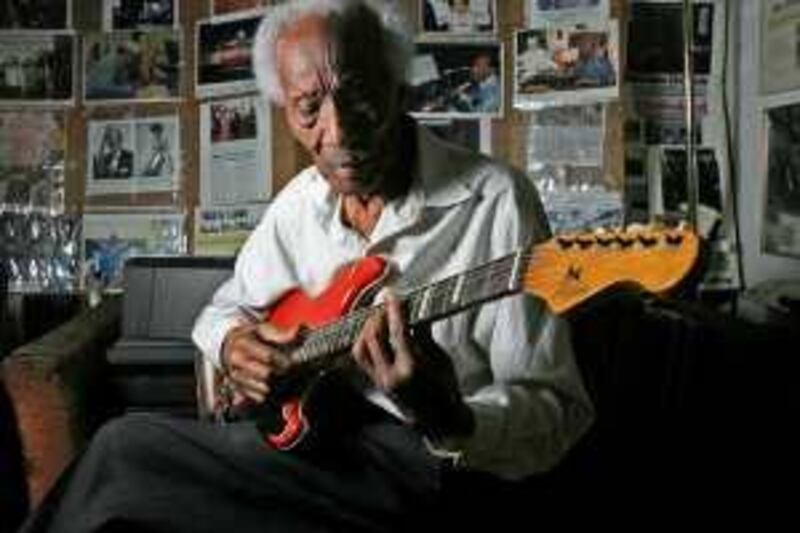Despite the fact that Huey Long was a member the Ink Spots for a mere nine months, his stint as a singer and guitarist with the most influential of all black vocal groups made his name. He could also lay claim, at 105 years, to being the last surviving member of the band. The Ink Spots Museum, founded in Houston in 2007 by Long's daughter Anita - who referred to her father as "such a heavy cat" - made much of the brief association that heralded the start of an 80-year career.
Long played ukulele, banjo and guitar on many of the definitive tracks of the 1940s and '50s, performing with Charlie Parker, Ella Fitzgerald and Dizzy Gillespie, among others. A versatile musician, he could tailor his sound to reflect the style of the day, from Dixieland through swing and on to bebop. Chance brought him his first break when Frank Davis and his Louisiana Jazz Band arrived in 1925 at the Rice Hotel in Houston, where Long worked shining shoes. The band lacked a banjo player, and though Long lacked a banjo, he obtained one swiftly on credit. The rest is history.
Born in Sealy, Texas, the young Huey accompanied the ragtime piano of his brother Sam on the ukulele, later taking music classes in Chicago where he moved to live with an aunt. His mother's parting words were never forgotten: "Wear your long underwear, stay warm and be a good boy." At the time, Chicago was a hotbed of mobsters who hired clubs after hours to hold private parties and paid the musicians well.
In 1933, Long played guitar with Texas Guinan's Cuban Orchestra for the show A Century of Progress at the World's Fair in Chicago. From then on, he worked as a session musician playing variously for the ex-Mrs Louis Armstrong, Lil Armstrong and Her Swing Orchestra, and the singers Billy Eckstine and Sarah Vaughan. In 1945, while playing with his own trio at the Three Deuces nightclub on 52nd Street in Manhattan, he was spotted by Bill Kenny, the leader of the Ink Spots, who invited Long to replace the replacement for the original guitarist, Charlie Fuqua. Drafted into the army, Fuqua had been succeeded by his childhood friend, Bernie Mackey. When Mackey left the band in 1945, Kenny scrambled to find yet another replacement. Long would record several tracks with the band, including I'm Gonna Turn Off the Teardrops, I'll Lose a Friend Tomorrow, Just for Me and The Sweetest Dream.
On leaving the group, he worked for the Snub Mosley Band in England, playing for the armed forces before going on to form the Huey Long Trio, which entertained US troops in Korea and Japan. The original Ink Spots spawned many imitators and in the 1960s Long fronted his own version, performing in California for two years before returning to New York. He set up a teaching studio, which later evolved into a small school that found its eventual home on Broadway.
In his old age, Long returned to Houston where he tried to coax his arthritic fingers to master the piano. A devout Christian, he was lauded by those who met him as a true gentleman. Huey Long was born on April 25, 1904. He died on June 10. He is survived by two sons and a daughter. * The National






